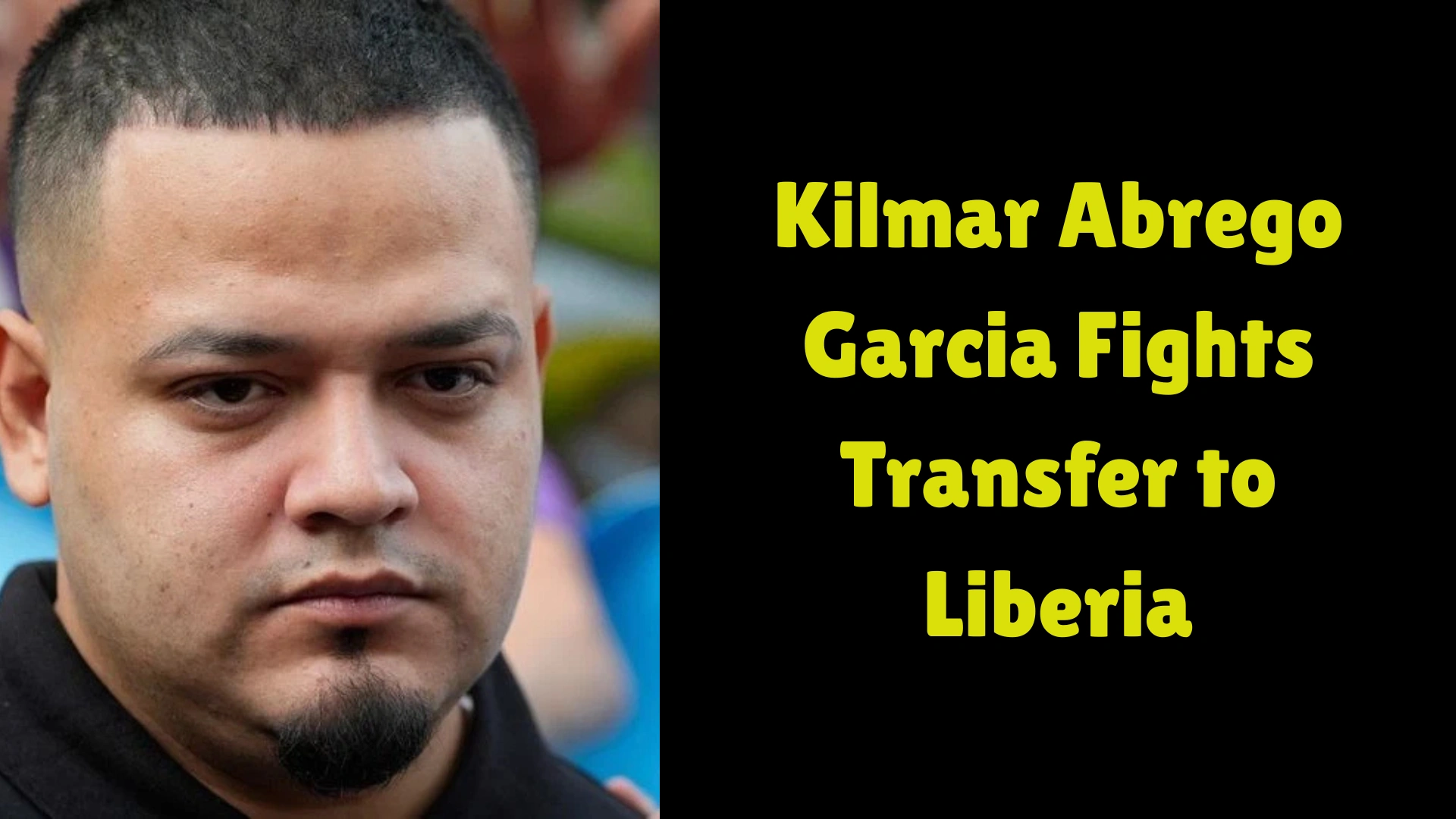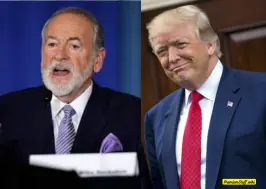Trump Declares Coca-Cola Will Sweeten U.S. Drinks with Real Cane Sugar — But Company Stays Mum
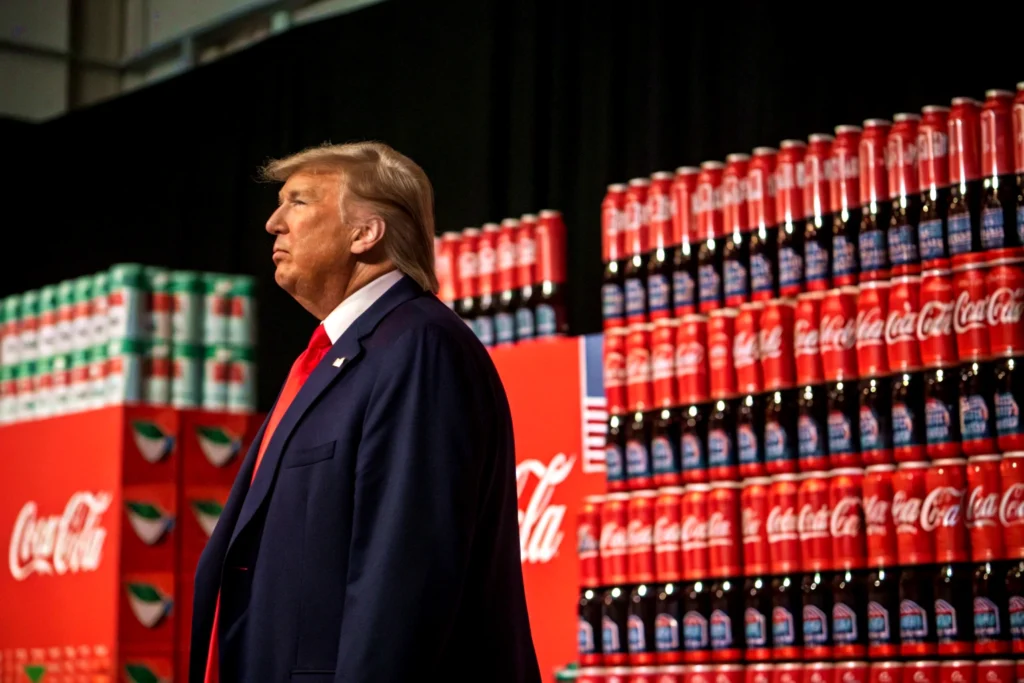
(Washington, D.C., July 17, 2025) — President Donald Trump ignited a soda storm Wednesday, announcing on Truth Social that Coca-Cola agreed to replace high-fructose corn syrup with “REAL Cane Sugar” in its U.S. beverages after his personal intervention. The claim sent shockwaves through agriculture, health, and corporate circles — even as Coca-Cola carefully sidestepped confirmation.
“I have been speaking to Coca-Cola about using REAL Cane Sugar in Coke in the United States, and they have agreed to do so,” Trump declared. “This will be a very good move by them — You’ll see. It’s just better!”
Coca-Cola’s Cautious Response
The Atlanta-based beverage giant neither confirmed nor denied Trump’s assertion. In a terse statement, a Coca-Cola spokesperson said: “We appreciate President Trump’s enthusiasm for our iconic Coca-Cola brand. More details on new innovative offerings within our Coca-Cola product range will be shared soon”
Industry analysts interpreted this as a hint toward a new product line — possibly a premium “heritage” cola — rather than a full overhaul of its classic U.S. formula, which has relied on corn syrup since the 1980s.
Why the Sudden Sweetener Swap?
Health Secretary’s Crusade
Trump’s push aligns with Health and Human Services Secretary Robert F. Kennedy Jr.’s “Make America Healthy Again” (MAHA) campaign. Kennedy has long criticized high-fructose corn syrup as a “formula for making you obese and diabetic”. A May 2025 report by Trump’s MAHA Commission singled out the sweetener as a contributor to childhood obesity.
Economic and Political Ingredients
The switch carries heavy stakes:
- Corn Farmers: HFCS relies on U.S.-subsidized corn, supporting Midwest agricultural jobs. The Corn Refiners Association warned the change would “cost thousands of American food manufacturing jobs [and] boost imports of foreign sugar”.
- Sugar Producers: Trump’s home state of Florida is the top U.S. sugarcane producer — raising questions about political motives.
- Consumer Cost: Sugar is pricier than HFCS, potentially raising soda prices. Tariffs on imported sugar further complicate economics.
The “Mexican Coke” Phenomenon
Coca-Cola already uses cane sugar in Mexico, Australia, and Europe. So-called “Mexican Coke” — sold in glass bottles — has a cult following in the U.S. for its “cleaner” taste. Imports surged after Coca-Cola began distributing it stateside in 2005.
“Replacing corn syrup with sugar doesn’t just change sweetness — it changes the soul of the soda,” said beverage historian Mark Pendergrast (author of For God, Country, and Coca-Cola). “But whether most Americans will notice — or pay extra — is unclear.”
The Health Debate: Sugar vs. Corn Syrup
Nutritionists were quick to temper excitement. While MAHA frames cane sugar as “healthier,” the FDA states there’s “no evidence” of safety differences between HFCS and sugar. Both contain similar fructose-glucose ratios and contribute equally to obesity when overconsumed.
“The focus should be on reducing all added sugars, not swapping one for another,” said Dr. Marion Nestle, nutrition professor at NYU. “A 12-ounce Coke still has 39 grams of sugar — nearly the daily limit”.
What’s Next for Coca-Cola?
Four likely scenarios emerged among analysts:
- A New Product Line: A cane-sugar “Coca-Cola Heritage” alongside classic corn-syrup Coke, similar to Pepsi’s “Real Sugar” line.
- Phased Transition: Gradually shifting select products (e.g., bottled Coke) to sugar.
- Political Face-Saving: A limited-edition release to acknowledge Trump’s request without upending supply chains.
- Status Quo: Walking back amid corn-lobby pressure.
“This pits Trump’s ‘America First’ agenda against itself,” noted agribusiness analyst Todd Becker. “Protecting corn jobs or promoting ‘healthier’ sugar? The math won’t sweeten for everyone”
The Irony of Trump’s Diet Coke Habit
Notably unaffected: Trump’s beloved Diet Coke, sweetened with aspartame. The president famously installed a button in the Oval Office’s Resolute Desk to summon aides for Diet Coke refills.
His relationship with Coca-Cola hasn’t always been smooth. In 2012, he tweeted that diet soda might cause weight gain, quipping: “The Coca-Cola company is not happy with me — that’s okay, I’ll still keep drinking that garbage”.
The Bottom Line
While coca cola donald trump headlines dominate, the real story remains in limbo. If Coca-Cola commits to cane sugar, it would mark the largest formula shift since the “New Coke” debacle of 1985 — reshaping agriculture, retail, and political alliances. For now, consumers, farmers, and politicians are left reading the bubbles.
“They say sugar tastes better,” shrugged convenience store clerk Luis Garcia in D.C., “but if a $2 Coke becomes $3, will anyone care?”

Christmas Nail Design 2025 Innovative Trends
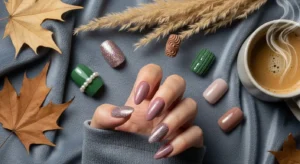
Fall 2025 Nail Design Trends

DIY Outdoor Christmas Decor : Easy & Magical Ideas

DIY Holiday Decor Hacks : 12 Festive Crafts You Can Finish in an Hour

What Are the Top 2025 Halloween Costume Ideas for US Women?

Your Tiny House Can Be Your Gateway to the Greener Life

The Cutest Family Dog Breeds for Your Home and Heart

10 Stress-Busting Snacks to Eat During a Hectic Day (That Actually Work!)

Why a High-Protein Diet After 30 Could Transform Your Health
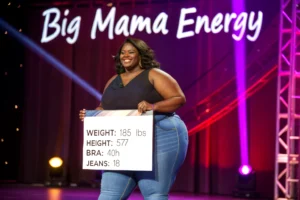
Big Mama Energy : 7 Body Stats Women are Proudly Flaunting (Thanks, Latto!)

Waist Slimming Workouts: Slow Pilates vs. Balletcore (4-Week Results)
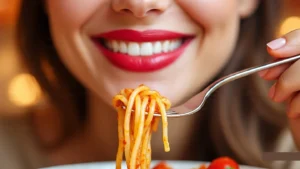
7 Cherry-Coded Approved Lip Tricks for Featherproof Color That Lasts Through Meals

This Simple Trick Changed How I Style Coastal Fashion Forever
Why Some Podiatrists Quietly Recommend Toe Spacers for Gut Health (The 3-in-1 Fix Big Shoe Brands Hate)

Why Everyone is Suddenly Talking About the “I Grieve Different” TikTok Trend

The 5-Minute Blush Trick That Makes You Look Like You Spent Hours on a Professional Makeover

Scalp Gua Sha Ritual: Melt Stress and Grow Hair Like TikTok’s Secret Masters

I Tried a Red Light Eye Mask for 42 Days : Results Were Stupidly Obvious

10 Signs You’re Dealing With a Negative Nancy (And How to Handle Them)


